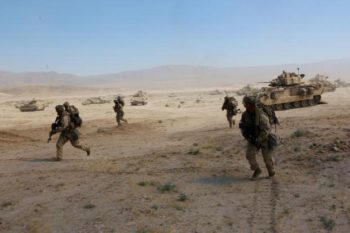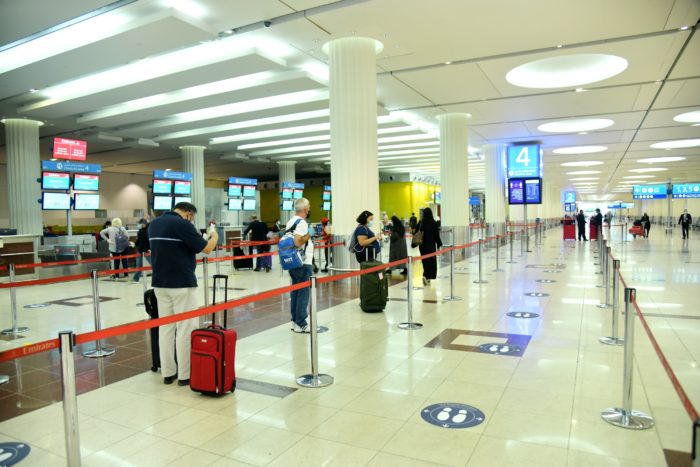Step by Step Into Dystopia
I’ve had a recent personal reminder concerning the nature of dystopia: So my Army Reserve training this year was supposed to look something like this:

Soldiers participating in a National Training Center (NTC) scenario at FT Irwin, CA. Credit: US Army
But what it actually looked like was more like this:
<–

Bored man on the sofa. Image source: fitnessandwellnessnews.com
–>
Covid Quarantine
Why was I sitting around? Well, without publicly getting into nitty-gritty details, early in my process of reporting for training and travel, my entire Army Reserve unit of nearly 30 people was considered to have been exposed to COVID 19 by US Army public health officials. So all of us spent 14 days in quarantine, most of it separated in individual rooms. We were strongly encouraged not to leave our rooms. Active Duty soldiers brought us food in styrofoam containers three times a day and each room had its own bathroom). I personally stuck to my room for the bulk of the two weeks but honestly went out and interacted with people a bit towards the end (though at a “social distance”!).
Naturally this cancelled any plans to attend training at NTC (in the desert of FT Irwin, California). Instead, the orders I had were cut short and I was sent home, arriving late yesterday.
It’s not the COVID quarantine itself that got me thinking of dystopia so much as engaging in air travel. And in fact thinking of dystopia related to Coronavirus is so obvious that loads of people are doing so in various ways. In fact I previously posted on story ideas related to Coronavirus on Speculative Faith.
Though this post isn’t about COVID 19 per se. More about the incremental nature of things going downhill.
On a personal note–well, this whole thing is based on a personal note, but wandering off the subject for a bit–I actually could have attended most of the Realm Maker’s virtual conference. I’d expected to be out of the range of Internet connectivity, but that’s not what happened at all in fact. And I only had relatively few paperwork-type tasks to perform. So I actually could have been there, again at least part of the time. But I stuck with the plan of having Anthony G. Cirilla represent Bear Publications and with the people I’d lined up to cover my posts on Speculative Faith and refrained from shelling out more cash than necessary by also attending RM. Kind of a shame for me, especially when people enjoyed it so much.
Modern Airport Travel
But anyway, back on subject. People younger than twenty will not have had this personal experience, but prior to 2001, airports did not have security screening near the entrance. Actually before my time, airports had no screening at all, but terrorists hijacking planes in the 1970s (back in those innocent old days they would simply threaten the crew and passengers with a gun and hold them hostage for ransom) caused metal detectors to be installed in many but not all airports at gates, just before you boarded the plane.
It used to be possible for your family or friends to enter the airport with you, wait with you for the time for the time of your flight to arrive, watch you enter the airplane, then wistfully watch your airplane disappear over the horizon before tearfully departing the airport. Since 9/11/2001, that has no longer been possible. Security screening is prompt and much more strict than anything that happened before. Also, things you might routinely carry with you in the past, like a pocket knife, like a bottle of water, became forbidden.
But once you were past security, things were relatively normal. You still had restaurants and still did a variety of ordinary things before boarding your plane.
But now, this is what the other side of security at an airport looks like:

Airport social distancing. Credit: Airport World
Floors are marked in many places where you can stand to maintain social distancing (though of course, on an airplane itself social distancing goes out the non-literal window). Mask wearing is enforced. Most airport restaurants are closed, but those few that are open, offer food to go or have spaces marked out where one person eats per table and anyone else has to take food to go. Though most other shops were open from what I saw.
Will these changes mark a new reality, a new permanent change, like the changes post-911? I’m thinking, “Yes.” At least in part. This virus will not go away immediately–or probably not, anyway–and it’s also virtually certain that new viruses will continue to crop up in various places around the globe. So how are the governments of the world going to respond?
An online friend who is not a fan of globalism hopes that this virus will cause nations to cut off international commerce (and travel) and nationalize industries. About that, I would say he’s dead wrong–that’s nowhere close to happening. But imposing a number of restrictions on travel? That’s already here and probably could become permanent relatively easily. Certainly the airports are not going to want to pull up all the marks on the floor they’ve already laid down to remind people to engage in social distancing…not when it’s uncertain if they will need to have them again in the near future.
Disclaimer
This post is not a rant against wearing masks or any kind of conspiracy theory. Yes, I accept wearing masks makes sense during a time with high rates of viral infection. No, I do not believe the virus is imaginary–I personally know people who got seriously sick, though I also personally know people who tested positive for COVID 19 who were asymptomatic (who exposed me, in fact). I do not believe anyone deliberately created or deliberately are exploiting this virus with the intent of taking away people’s rights–even if that is what’s happening to a degree (people losing rights), I don’t believe it’s deliberate.
Step by Step Dystopia
As I just touched upon above, I don’t believe the current state of affairs at airports is an attempt to take away rights. It’s clearly an attempt to keep people safe, an attempt justified by circumstances, just like the stepped up security measures post-9/11 had genuine reasons behind them.
But that’s not dystopia, right? Right? Right?
I mean, we get used to the changes. We pack bags differently. We say goodbye to friends before going to the airport, or perhaps a brief farewell as we’re dropped off at the curb. We wear masks and get used to wearing masks. We social distance and get used to social distancing. We take the masks off at home, anyway, so what’s the big deal?
Sure. We are not actually in a dystopia now and if you think we are, I strongly suggest you go read Aleksandr Solzhenitsyn’s Gulag Archipelago to find out what a real nightmare scenario of a government is actually like.
Overall, the USA, UK, Australia, Canada, and most of Europe enjoy freedom and security far above what most people through most of the history of the world experienced. And we still are relatively well-off, in spite of modern restrictions. So please don’t engage in any crybabyism about how bad things have turned based on anything I wrote in this post.
But still, isn’t it interesting how people can get used to almost anything, step by step? I mean, lots of stories that feature dystopian science fiction imagine a dictatorship taking over and forcing everyone to change at gunpoint. Certainly that was Solzhenitsyn’s experience during the Stalinist era of the Soviet Union (even before Stalin, actually).
What recent events show is conversion at gunpoint to a dystopia isn’t actually necessary. A society can become a dystopia gradually, step by step, one step at a time, people getting accustomed to each change, not really realizing what’s happening.
Conclusion
The idea that people can gradually get used to almost anything isn’t a new observation on my part. Many other people have made it. But my recent experience traveling by air strongly reinforced the point. It really is a true about humans that we get accustomed to incremental change–so for those of you who write dystopian fiction, bear that in mind. Perhaps a sweeping dictatorship to initiate dystopia isn’t actually required in your story setup. Perhaps a dystopia can come without a dictatorship (which I know has in fact been done in sci fi).
Speaking of fictional dystopias, science fiction has cranked out many different flavors in the past. Have you read any in which dystopia came about gradually? Gradually as a result of a conspiracy? Or gradually by accident? Did the conspiracies always lead to a dictatorship? Can you think of speculative fiction (not just sci fi) stories that featured dystopias that took place one step at a time, people barely noticing the changes? Please mention them in the comments below.











































Most dystopias don’t depict how it happened. At least not ones I’ve read.
1984 opens with Winston Smith struggling to get to work on time. Just another day at the office. Beneath the ostensibly benevolent eyes of Big Brother.
Good point, though some dystopias do provide a backstory. Though 1984, like most dystopias, features an all-controlling government. Part of what I wanted to point out is you can have a dystopia without an all-controlling government. E.g. Blade Runner…
Watching the events, and changes/restrictions, over the past several months, I think of a frog in boiling water. You don’t just toss him in hot water. You place him in cool water and gradually turn up the heat. It’s been feeling like that to some extend. And just when we thought we were heading back to normal (sort of), the lockdown was put back in place. That’s when I noticed a spark of rebellion. Turning up the heat slowing, adding minor restrictions one on top of the other, and the public doesn’t fuss so much. But putting those in place, taking them down (slightly) and then within a week putting them all back up? People are less likely to comply as before.
Lots are treating this as the next new “normal”, but some are expecting this to be all temporary. A cashier at the grocery store is expecting the Plexiglass, floor stickers, masks and social distancing to go away.
It is an interesting thought. It does make sense for it to be a more gradual, step by step change. I’ve seen discussions where writers want to avoid writing about this virus. But some have suggested that, if their story is contemporary, perhaps an acknowledgement of it might be warranted. I’ve seen similar discussions regarding future movies set in present time. Should they be wearing masks? Or make mention of the virus, or otherwise note how the character(s) was affected by it?
So you basically had your time wasted for a while? Sounds like that could be frustrating. Or a time to relax, one or the other.
I’ve been thinking about some of the social distancing procedures lately and have been sure that at least a few things will stay, at least in some places. Mainly in the form of the glass separating cashiers from customers and such.
The potential slow creep into dystopia is concerning. One thing to point out is that dystopia can occur from the result of someone’s ideal world. Either because that ideal world actually had horrific side effects, that ideal world was only good for select groups, or because forcing that ideal world to exist means being extremely restrictive and having to punish anyone that steps out of line, even if those people are relatively good.
Dystopia is somewhat relative to who is asked. With the Hunger Games, it was mainly a dystopia for those living in the Districts, and a lot of the city dwellers were doing relatively ok, though even then they were living in a tyranny and would have a horrible life if they stepped out of line, too.
In Death Note, Light seemed well on his way to turning the world into a dystopia. In a way it was a slow creep because technically the Kira investigation lasted for several years before he finally maneuvered himself into a position where he could take over. Though maybe his takeover would have seemed very sudden to those that weren’t involved. The world would have just been whispering about Kira, and then suddenly Kira took over and started mandating what could be taught in schools, and saying that anyone that commits a crime will get killed, etc. Light was defeated before he could fully cement his power, but his dystopia would have been gradual in the sense that he wouldn’t have just taken over in one day. But it would have been sudden in the sense that some people wouldn’t have expected it and the changes to people’s lives might have taken place in a matter of weeks and some would have viewed them as harsh.
A lot of the issues surrounding masks and quarantines have been annoying, with some people taking it waaaaay too seriously, and some people not taking it seriously enough, but having that interplay between mindsets is important. If everyone just agreed to the idea of quarantines without question, then everyone would just go around agreeing to circumstances that limit their rights or cause unnecessary damage to the economy. But if we all flagrantly refused quarantines and masks, then there would be a lot of unnecessary sickness. The presence of both sides is important because they can question each other, hold each other accountable, and bring crucial points into a discussion that otherwise would not have had them.
And my two favorite quarantine humor vids:
https://www.youtube.com/watch?v=Em89_BaDdI0